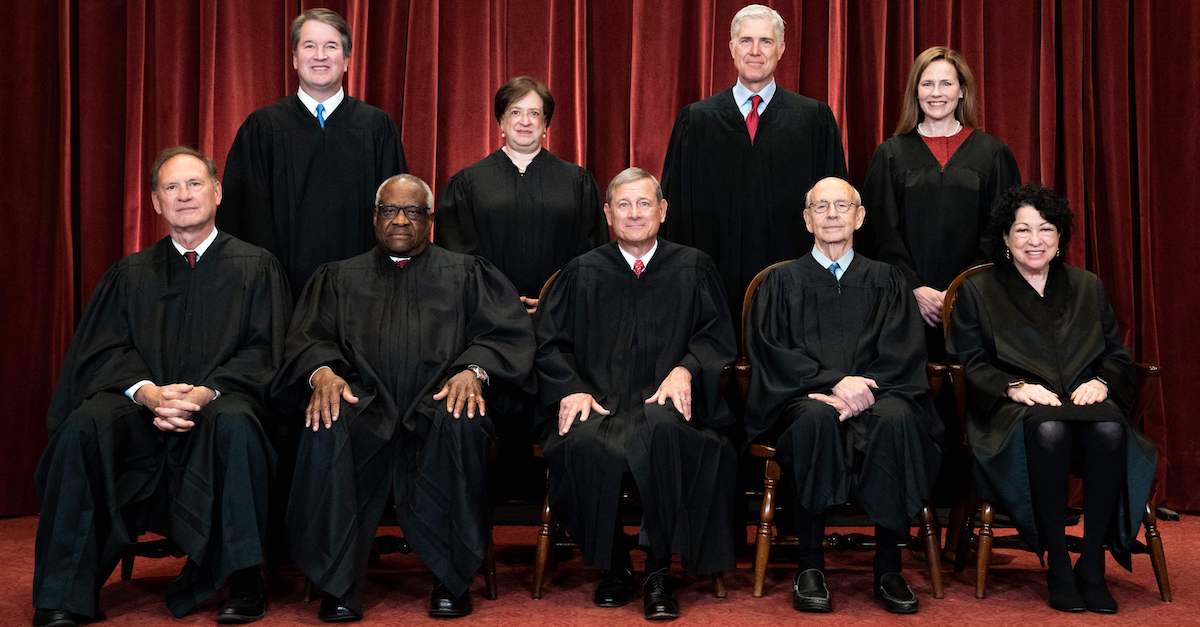
The Supreme Court of the United States ruled 6-3 Tuesday that non-citizens — “aliens” in the verbiage of the opinion — who are removed from the United States and who subsequently return to this country must be detained without a bond hearing while they await a second removal hearing — even if those non-citizens fear for their safety in the countries back to which they will be sent.
In the case, Johnson v. Guzman Chavez, the Court was asked to decide which of two provisions of the Immigration and Nationality Act applies in the cases of individuals awaiting a second removal hearing — one that would (1) demand detention; the other would (2) permit the individuals to have a bond hearing (at which they could request release).
Both respondents are non-citizens who were removed from the United States and claim to have been persecuted, tortured, or threatened while in the countries to which they had been removed the first time. Though they were removed once, they returned to the United States, fearing for their safety elsewhere.
These individuals now face a second removal hearing — a process which can often take several years. The question faced by the Court was whether the individuals should be automatically detained while waiting for their hearings — or whether they should be allowed the option to demonstrate that they pose neither a danger to the community nor a flight risk, post bond, and on that basis return to their families in the U.S. while awaiting further hearings.
The Supreme Court decided that 8 U.S.C. § 1231 applies and that it requires mandatory detention during the pendency of removal proceedings.
Justice Samuel Alito wrote for the six-member majority, finding that because the individuals’ initial removal orders were “administratively final,” federal immigration law demands that the non-citizens be detained while awaiting a second removal proceeding.
Much of the Court’s decision turned on statutory analysis of the procedural specifics of removals. Reasoning that Congress’ intent was to limit bond hearings to those who are less likely to abscond, Alito engaged in a lengthy analysis of the applicable statute.
The justice drew an important distinction between individuals who have reentered the United States after being once removed and those who await their first removal hearing. “Aliens who have not been ordered removed are less likely to abscond because they have a chance of being found admissible,” he explained. However, he rationed that once-removed aliens are patently less trustworthy. According to the Alito majority, “aliens who reentered the country illegally after removal have demonstrated a willingness to violate the terms of a removal order, and they therefore may be less likely to comply with the reinstated order.” For this difference, according to Alito, “Congress had obvious reasons to treat these two groups differently.”
Justice Clarence Thomas penned a brief concurrence joined by Justice Neil Gorsuch. Thomas and Gorsuch took specific issue with one of Alito’s footnotes which addressed jurisdiction. Thomas reminded his colleagues that SCOTUS has an “independent obligation” to assess whether it has jurisdiction, and that in his opinion, “We do not have it here.” The Supreme Court’s jurisdiction in removal cases is specifically restricted by Congress and is unauthorized in this particular type of dispute reasoned Thomas. However, given that the Court’s opinion is “otherwise correct,” Thomas and Gorsuch join the majority in its holding.
Justices Stephen Breyer, Sonia Sotomayor, and Elena Kagan dissented. Writing for the trio, Justice Breyer argued that the majority misinterpreted federal immigration law. According to Breyer, “restriction on removal when an alien fears persecution or torture embodies an important international legal obligation that the United States has undertaken.”
Breyer elaborated by explaining that in the immigration context, “[b]ond is normally granted only if the immigration judge has assurance that the alien will not abscond and is instead ‘likely to appear for any future proceeding.'”
“But why would Congress want to deny a bond hearing to individuals who reasonably fear persecution or torture, and who, as a result, face proceedings that may last for many months or years?” Breyer questioned. “I can find no satisfactory answer to this question,” he concluded.
[image via Erin Schaff/POOL/AFP via Getty Images]